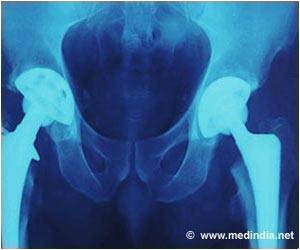Prescribing anticoagulants as a preventative measure post surgery may be unnecessary for most patients, and could even be harmful to a small proportion.

‘As many as three out of four surgery patients could be receiving anti-clotting medications that they do not need.’





In a study
led by investigators at the University of Utah School of Medicine it was observed that as many as three out of four surgery patients could be receiving
anti-clotting medications that they do not need. The research will be published in Annals of Surgery.
"A 'one-size-fits-all approach' doesn't always make sense," says the study's lead author Christopher Pannucci, an assistant professor of surgery. "A healthy 35-year-old is very different from someone who is 85 and has a history of clots. Our research indicates that there could be a substantial number of people who are being over-treated."
The investigators reviewed 14,776 records from 13 research studies to determine which surgical patients were most likely, and least likely, to benefit from anticoagulants. Within the studies were a broad range of surgical patients, ranging from individuals with few to multiple clotting risk factors such as obesity, advanced age, and personal or family history of blood clots.
They were segregated into one of five categories indicating overall clot risk. Assessment was based on a tool called the Caprini score that gauges the impact of each patient's collection of risk factors.
Risk stratification revealed a large patient-to-patient variation in clot risk. Patients who were not given anticoagulants, and who were gauged to be at highest risk, were 14-fold more likely to develop clots than those in the low risk category (10.7% vs. 0.7%). These findings were independent of the type of surgery required by patients.
Advertisement
The good news is that high risk patients, when given anticoagulants, had significantly decreased risk for developing clots. While the results make sense, they had never before been shown, says Pannucci.
Advertisement
"For the first time we have data that prophylaxis for the highest risk groups is beneficial, and data that suggests that lower risk patients may need no prophylaxis," says co-author Peter Henke, M.D., a professor of surgery at University of Michigan Health System. The data were gathered based on observational data, and prospective studies will need to be done to prove whether anticoagulants work better for some patient populations as compared to others.
Eliminating over treatment could cut down on unnecessary costs, and results from this study suggest it could also prevent medical complications in some patients. By definition, anticoagulants increase the amount of time it takes for blood to clot, introducing a rare but sometimes serious side effect: excessive bleeding. Just under two percent of all the surgery patients had bleeding complications, and these adverse events significantly increased in the group given anti-clotting drugs.
"Why would we give someone a drug if it doesn't offer benefit and could offer them harm?" says senior author Benjamin Brooke, assistant professor of surgery. "Much of health care is routine and standardized, but studies like this are forcing us to evolve our thinking toward doing what's best for each individual."
Source-Eurekalert










